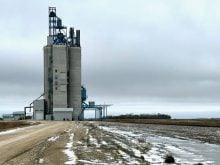The Canadian government and Canadian Wheat Board know they’re going to have to defend themselves before a World Trade Organization panel over the next few months.
They don’t yet know what they’re going to have to defend themselves against.
“The U.S. has not fleshed out what its particular allegations against us are,” said CWB trade policy analyst Charray Dutka.
“It’s all still quite vague.”
The WTO announced last week it was establishing a trade dispute resolution panel to look into a variety of complaints by the United States about Canada’s wheat trading policies.
Read Also

Farmland ownership fires up Saskatchewan politicians
Saskatchewan politicians debate the enforcement of farmland ownership laws in the province.
In its request for the panel, the U.S. cited a number of policies that it said violated Canada’s obligations under international trade agreements.
The March 6 letter from the U.S. government to the WTO makes a series of broad allegations against Canada’s wheat exporting and importing practices:
- On the export side, the U.S. alleges that the CWB Act and the board’s sales activities violate Article 17 of the General Agreement on Tariffs and Trade, which sets out the rules governing the activity of state trading enterprises.
It says the board fails to conduct business in a commercial manner and denies other WTO members an opportunity to participate in the purchase and sale of Canadian wheat.
- For grain imported into Canada, the U.S. cited a number of Canadian policies that it says improperly discriminate against foreign grain in favour of domestic product.
Those include rules governing the segregation of imported from domestic grain in the grain handling system, the receipt of foreign grain into Canadian elevators, the railways’ grain revenue cap and the system of allocating rail cars.
The federal government and the wheat board have consistently denied that the board violates GATT or WTO rules in its grain exporting practices and have expressed confidence that it will be exonerated by any WTO investigation.
However, Dutka said it’s too early to respond in detail because it’s still unclear exactly what the U.S. is alleging or what sort of evidence it will present to support its complaint.
“Until we see the full case and the detailed allegations, it’s really hard to guess at the U.S. case at this point.”
That will happen when the U.S. makes it first formal written submission to the three-member panel in mid-June.
Three weeks later Canada will submit its arguments, with each side then being given an opportunity to appear before the panel to respond to the other’s arguments.
In late November the panel will release an interim report to the Canadian and U.S. governments, and again each side will be able to respond and make a final pitch.
A final decision will be released to the two parties in January. If the report is adopted by the full WTO membership it will become binding. The decision can be appealed.
Five WTO members – Chile, Taiwan, the European Union, Japan and Mexico – reserved their “third party rights” in the case, meaning they will be able to observe the process and make formal submissions to the panel.
The federal government last week criticized the U.S. for taking the case to the WTO.
CWB minister Ralph Goodale said in a News release
news the Americans have a long history of making unsubstantiated allegations against the board.
“The government of Canada will aggressively defend Canada’s interests before the WTO panel and remains steadfast in the belief that the CWB trades fairly,” he said.
International trade minister Pierre Pettigrew said world trade rules clearly allow for the existence and operation of STEs such as the wheat board and said the board lives up to all of those rules.














